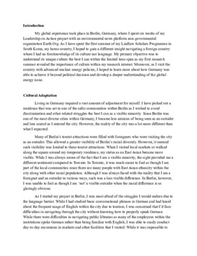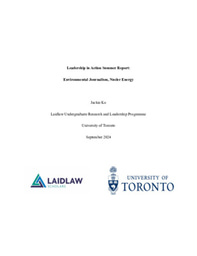Week 3 Log
What went well?
(The progress I made; what was achieved and done)
This week was focused on wrapping up the preliminary guide to be sent to my program advisor for review, while finalizing my first article. Despite the difficulties I faced in framing the article within the limits of word count and audience considerations, I was able to finish my first article – including all links that must be substituted to the piece. There were many information and context I had to remove and omit due to the limits in an online article that I can’t include any texts or journals that everyone can have access to – due to the issue of fact-checking purposes. This took more time than I expected in trying to find new sources and limiting the information iterated in the article.
On the other hand, I finished my preliminary nuclear energy resource guide, writing up two to three literary analyses for each of the five big sections I divided it up to. I included an introductory paragraph for each section to guide the readers in understanding why each aspect is important. As I wrapped up these two parts of the project, I further realized what kind of resources the journalists may require beyond foundational resources they may need to understand the topic of nuclear energy. Thus, I was able to make a personal plan on what I wish to add in the guide once I receive feedback from my program advisor.
What could have been done differently?
(Things that did not get done and/or could be changed)
The main thing I could have done better would be task management. As there were two tasks to complete with the decision-making process being carried by myself, I found myself moving back and forth between them. Although I was able to finish them within the planned deadline, I found myself struggling due to stress combined with other external factors. If I had understood my limits better, I believe I would have also been able to make adjustments in managing time with realistic expectations of myself and in a healthier manner.
What did I learn about myself when working with others?
(Contributions, behaviours and values I exhibited)
I learned the importance of bravery in collaborating with others. My work required communication with my program advisor although the project was mostly conducted alone. Bravery was needed not only in admitting that there were delays in finishing the planned portions as I communicated with my editor, but also bravery in admitting to myself of the barriers I endured. Although I did learn my own issues as I worked throughout the week, and made necessary adjustments to meet the deadline - I faced difficulty in admitting to myself at the start of the week. Possessing this bravery early on would have made my work more manageable. This insight further made me realize that understanding myself and having the bravery to admit this to others is crucial in making teamwork to function better.
What did I learn about leadership?
(Leadership attributes and insights I developed)
As I mentioned in the previous section, I learned that leadership can be achieved through admitting one’s weaknesses. I have originally believed that attributes such as charisma and ambition are the most important qualities for a leader. Since these would allow the team to maintain organized management, I had once thought that a leader who doesn’t seem vulnerable is fit to carry on the burdens of being a leader. However, the experiences over the weeks taught me that a leader should be brave enough to admit their own weaknesses just like everyone else. I learned that a leader’s vulnerability will allow them to become more understanding in their leadership and collaboration.
What do I want to develop or focus on next?
(What I still need to develop)
In the coming weeks, I will be communicating with my editor to collaborate, receive feedback, and edit my works. I will be further spending time to collect information for the guide while looking into interview options. As I now learned about my limitations, I hope to further develop my management skills as I continue the project.


Please sign in
If you are a registered user on Laidlaw Scholars Network, please sign in